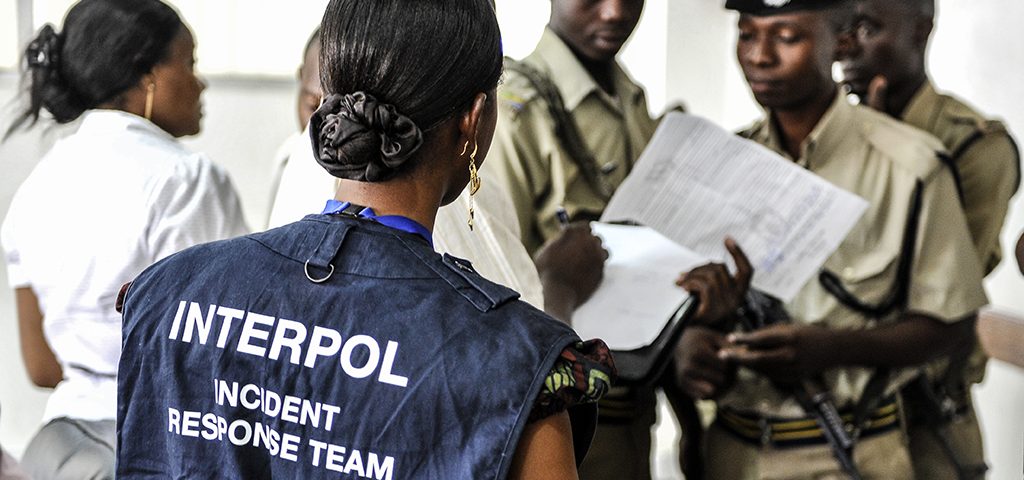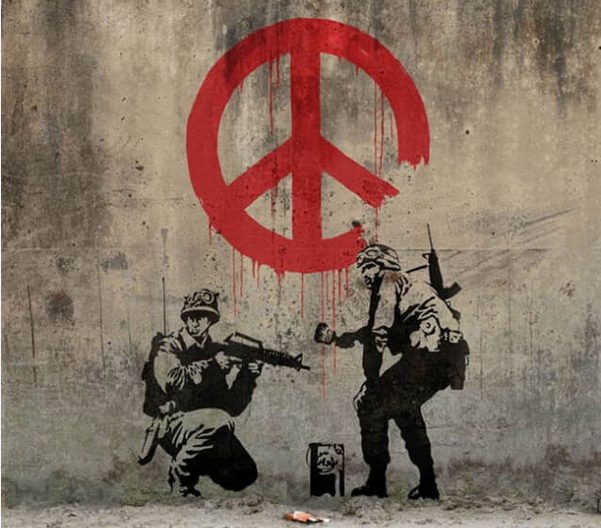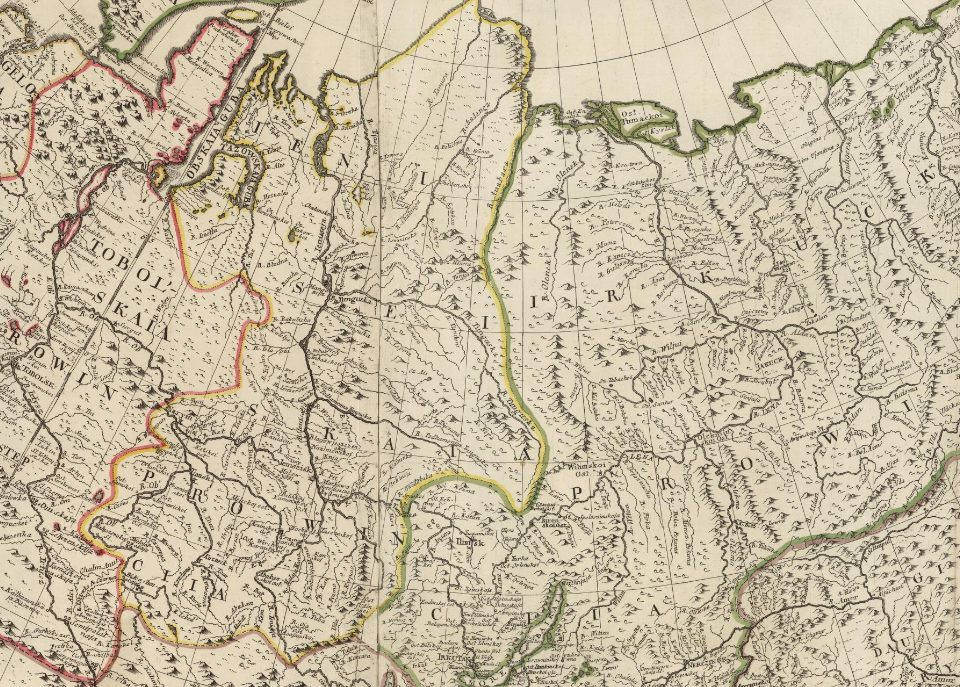


UN Peacekeeping: Three Strategies on The Ground
16 April 2023Truth without Justice? Law in the Face of Mass Crimes
16 April 2023By Didier Bigo
How to assess the counterterrorism policies implemented abroad to prevent attacks on French soil? These policies emerged during George W. Bush Junior’s ‘war on terror’ after 11 September 2001 and were adopted by France after the attacks of 2015 – with much more limited means and without torture. They deserve to be questioned.
The time is ripe to take stock of these policies, as the United States has abandoned Afghanistan and France has abandoned Mali and scaled back its ambitions to control the Sahel. But instead of doing so and drawing lessons, geopolitical pundits are ignoring their mistakes and clinging to the argument that the Russian-provoked war in Ukraine has radically changed the ‘strategic landscape’ and marked a return to ‘real conflicts’.
Without dwelling on the inconsistencies of this latest reversal, the question of the effectiveness of counterterrorism is worth analysing in depth: have counterterrorism operations involving interventions on foreign soil and secret service actions in extrajudicial executions eradicated terrorism or have they entrenched it more firmly in the global landscape? Is waging preventive war against poorly identified enemies a coherent long-term strategy, or is it a way of taking revenge in the belief that the action will deter adversaries from attacking a stronger opponent? Or, more subtly, could it reflect a lack of knowledge on the part of all actors of mimetic rivalry, as defined by the anthropologist René Girard, who argued that this type of conflict leads to a convergence in the violent behaviour of the adversaries? It would thus maintain the illusion of their discourse about the differences in their moral values, leading to an all-against-one mentality and the creation of a scapegoat (1)Collective, Pariss. « The Art of Writing Social Sciences: Disrupting the Current Politics of Style ». in Political Anthropological Research on International Social Sciences , 2020. Traduction en Français: ” L’art d’écrire les sciences sociales : Bousculer les politiques du style actuelles », in Cultures et Conflits 2022..
This hypothesis has the advantage of accounting for the blind spots of adversaries and observers who focus on identity differences by showing that the initial justifications of adversaries hollow out over time amidst the blows. More importantly, the paradoxical result of counterterrorism is not the successful delegitimisation of the other through denigration. Rather, it sets in motion a vicious cycle of unregulated vengeance. Far from mitigating violence through superior force to deter aggressive intentions, it actually creates a spiral of increasingly intense violence. The latter does not immediately resolve the conflict: the violence may make the conflict disappear for a moment, but it anchors the conflict in the memories of several generations and de facto prolongs it.
Moreover, unlike a police investigation, the counterterrorist cycle tends to increase the number of actors involved, to attack populations perceived to be close to the actors, to reproduce the arbitrariness of the targets, and to spread the violence into myriad of networks that are never reduced to a final duel and confrontation. As the conflict deepens, the attacks of some are met with extrajudicial executions or the arrest of their so-called radicalised wives and children. The latter are seen as ticking time bombs rather than children to be re-socialised as soon as possible. Imagining the worst possible future becomes the justification for reciprocal acts of violence.
To those who denounce the excesses of counter-terrorism, ‘the defenders of the effectiveness of these preventive operations reply that, in the face of terrorism, there is no other solution than to eradicate it by responding to the violence of the terrorists. They argue that the source of the violence lies with the terrorists, and that counterterrorism only seeks to anticipate future attacks, since the risk of letting them happen is intolerable. Finally, they argue that ‘terrorists do not attack in response to counterterrorism, but because they are radical enemies of the values of democracy, tolerance and secularism’.
The weekly magazine L’Obs echoed these opposing positions in a series of articles, demonstrating – with the statistics to back it up – that states that carry out counterterrorism operations abroad are objectively more affected than those that avoid these methods and use other means of coercion.(2)« Guerres et terrorisme : sortir du déni », Nouvelobs.com, publié le 14/11/2020. « Guerres et terrorisme : ne pas se tromper de cible », Nouvelobs.com, 20/11/2020 « Le lien entre guerre et terrorisme : ce qu’en disent les études », Nouvelobs.com, publié le 26/11/2020..
Faced with this disagreement on the effectiveness of the so-called preventive policy based on the logic of suspicion, and in order to better understand the different situations, a group of researchers to which I belong have taken it upon themselves to refine the statistics, to put them into context and to show the different facets and stages of each specific case. In fact, the issue of justifying violence as a means of preventing the worst in the future by presenting violence as a legitimate defence goes far beyond the counterterrorism operations of Western governments.
In a recent issue of Cultures and Conflicts on counterterrorism (‘War and counterterrorism’ Cultures and Conflicts No. 123/124 – Autumn/Winter 2021), we explored the relational and antagonistic approach of counterterrorism, especially when it is presented as prevention needed to protect the populations it claims to defend on the basis of allegedly predictive knowledge and technologies.
The issue opens with a dossier dedicated to the relationship between external military interventions of liberal states and forms of political violence perpetrated by clandestine actors on the territory of these states. After a collective introduction in which a variety of disciplines – political sociology, comparative studies, area studies, military studies, international relations – intersect, a series of quantitative and qualitative approaches are presented in “Are military interventions a cause of ‘terrorism’? On the usefulness of quantitative analyses for critical security studies, by Mathias Delori, Clara Egger, Raul Magni-Berton and Simon Varaine. (3)Les interventions militaires sont-elles une cause du « terrorisme » ? De l’utilité des analyses quantitatives pour les études critiques de la sécurité, Mathias Delori, Clara Egger, Raul Magni-Berton and Simon Varaine. Their aim is to explain the role of warlike counterterrorism and its effects on the persistence of domestic attacks, on foreign policy, and on arms sales policies. These studies also examine the impact of counterterrorism on the civilian populations of affected countries, both at home and abroad, on the conception and practice of justice, and on the relationship with the rule of law. The convergence of the results of these approaches is striking and shows that, with the exception of a few researchers directly involved in strategic and geopolitical studies and ‘decision facilitating’, other researchers, field actors and investigative journalists agree that the use of counter-terrorism does not effectively protect civilian populations and is of questionable effectiveness in terms of foreign policy and defence.
The issue continues with a detailed discussion of the value and limits of relational approaches to so-called terrorist violence and counter-terrorism by examining similarities and differences in the discursive strategies of actors [Mimetic rivalry, a matrix for the war on terrorism and its discursive strategies? By Didier Bigo, Laurent Bonnefoy, Mathias Delori, Anastassia Tsoukala and Christophe Wasinski](4)La rivalité mimétique, une matrice de la guerre contre le terrorisme et de ses stratégies discursives ?, Didier Bigo, Laurent Bonnefoy, Mathias Delori, Anastassia Tsoukala et Christophe Wasinski. The practical dynamics that shape implementation on the ground are also analysed in order to show the relevance and limits of René Girard’s hypothesis, as well as the specific interrelationships that unfold in each case according to differences in legitimacy, the attitudes of the armed forces and secret services involved, the forms taken by clandestine organisations, and transnational interdependencies.
While it is important to be wary of over-generalisations, the fact remains that the distinction between domestic and foreign policy – whether for moral or cynical reasons – leads to wilful blindness if it is repeated regularly and policies that ‘persistently succeed in failing’ are not jettisoned, according to a ‘logic’ that the psychotherapist and sociologist Paul Watzlawick first highlighted in the 1980s in his book « Ultra-Solutions : How to Fail Most Successfully » (WW Norton & Co., 1988).
In order to avoid the blindness of a globalist vision of geopolitics, Afghanistan, Mali and Chad are discussed in more detail by regional specialists [From the ‘war on terror’ to endless war: the co-production of violence in Afghanistan, Mali and Chad, by Bruno Charbonneau, Marielle Debos, Jean-Paul Hanon, Christian Olsson and Christophe Wasinski](5)De la « guerre contre le terrorisme » aux guerres sans fin : la co-production de la violence en Afghanistan, au Mali et au Tchad, Bruno Charbonneau, Marielle Debos, Jean-Paul Hanon, Christian Olsson et Christophe Wasinski.. The aim is to specify the dynamics of interaction in each case in order to discuss their relevance in the light of France’s subsequent withdrawals. The same applies to the French policy of arms sales and aid to the Sissi government in Egypt, where current issues of secrecy and disclosure are examined [Counterterrorism as a pretext. A look at Operation Sirli and French policy, by Didier Bigo and Jean-Paul Hanon](6)Le contreterrorisme comme prétexte. Retour sur l’opération Sirli et la politique française, Didier Bigo et Jean-Paul Hanon..
Finally, a last contribution [What the ‘war on terror’ does to justice, by Emmanuel-Pierre Guittet, Antoine Mégie and Sharon Weill](7)Ce que la « guerre au terrorisme » fait à la justice, par Emmanuel-Pierre Guittet, Antoine Mégie et Sharon Weill examines in detail the implications of conducting anti-terrorist trials on French soil in terms of the possible restoration of justice and forms of law. This last contribution allows us to reflect on how a geopolitical perspective that divides the national and international scenes is anathema to an understanding of today’s world.
Didier Bigo is a professor at the Centre for International Studies [CERI]. His research focuses on conflicts and (in)security. He develops an International Political Sociology agenda in order to revisit and enrich the theories of international relations.
Notes




